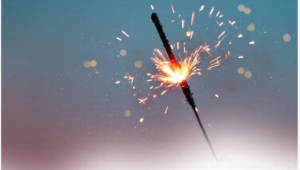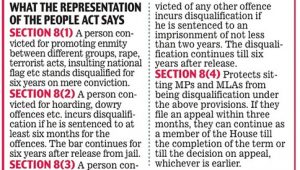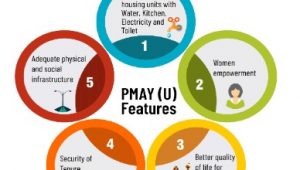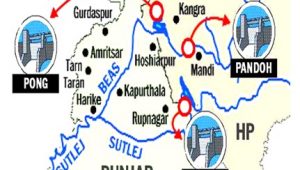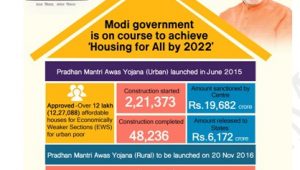
Current Affairs 26 March 2021
- Why no decision on list sent by Collegium, SC asks government
- Recommendations pending for 6 to 18 months.
- The Supreme Court asked the government to clarify on the status of 55 recommendations made by the collegium for judicial appointments to High Courts.
- “This is a matter of grave concern… When do you propose to take a decision?” asks CJI Sharad A Bobde to Attorney General.
- The Total sanctioned strength in the 25 High Courts is 1,080. However, the present working strength is 661 with 419 vacancies as on March 1.
- Justice Surya Kant, said “a time frame needed to be fixed for both the collegium and the Ministry to complete the appointment process”.

- Collegium System:
- It is the system of appointment and transfer of judges that has evolved through judgments of the SC, and not by the Act of Parliament or by provision of the Constitution.
- SC introduced Collegium system in 2nd Judges Case 1993, holding that “consultation really meant “concurrence”.
- Collegium expanded into a 5 member body in 3rd Judges Case 1998.
- The SC Collegium is headed by the CJI and comprises four other senior most judges of the court.
- A High Court Collegium is headed by its Chief Justice and four other senior most judges in that Court.
- Names recommended for the appointment by HC collegium reaches the government only after approval by the CJI and the SC Collegium.
- Judges of the higher judiciary are appointed only through the collegium system and the government has a role only after names have been decided by the collegium
- The government’s role is limited to getting an inquiry conducted by the intelligence Bureau (IB) if a lawyer is to be elevated as a judge in a High Court or the Supreme Court.
- Government can also raise objections and seek clarification regarding the collegium’s choices, but if the collegium reiterates the same names, the government is bound, under the Constitution Bench judgments, to appoint them as judges.
- Procedure for various judicial appointments
- For CJI
- The President of India appoints the CJI and the other SC judges.
- As far as the CJI is concerned, the outgoing CJI recommends his successor.
- In practice, it has been strictly by seniority ever since the supersession controversy of the 1970s.
- For SC judges
- The proposal is initiated by the CJI
- The CJI consults the rest of the collegium members, as well as the senior most judge of the court hailing from the High Court to which the recommended person belongs.
- The consulters must record their opinions in writing and it should from part of the file.
- The collegium sends the recommendation to the Law Minister, who forwards it to the Prime Minister to advise the President for the appointment.
- For Chief Justice of High Courts
- The Chief Justice of High Court is appointed as per the policy of having Chief Justices from outside the respective States.
- The Collegium takes the call on the elevation
- High Court Judges are recommended by a Collegium comprising the CJI and two senior-most judges.
- The proposal however is initiated by the outgoing Chief Justice of the High Court concerned in consultation with the two senior-most judges in the collegium.
- The recommendation is sent to the Chief Minister, who advises the Governor t send the proposal to the Union Law Minister.
- For CJI

- Apex court bats for women officers in Army
- The Supreme Court held that Army’s “selective” evaluation process discriminates against women short service commission officers seeking permanent commission.
- This is arbitrary and irrational
- In a serious of directions, the court ordered that the cases of women officers who have applied for permanent commission should be reconsidered in a month and the decision should be given in two months.

- In signal to China, U.S. raised India ties during Alaska talks
- Joe Biden administration highlighted the strength of U.S.-India ties in its March 19 meeting with Chinese officials in Alaska.
- S. pushing the bar against China against Chinese over presence in Indo-Pacific region.
- This is the main reason for successful holding of the virtual summit of the Quad between India, the U.S., Japan, and Australia.
- Opposition denied chance for discussion: Congress
- The party said many of the laws passed in the second part of budget session will legally challenged in the Supreme Court.
- The Government of National Capital Territory of Delhi (GNCTD) law, 3 Farm laws, Mines and Mineral (Regulation and Development) Act as examples.
- This is the first time the Opposition’s legitimate demand for calling attention [motion], short duration [discussion] has not been agreed to, if it has not been agreed to, it means the government is not keen or prepared to discuss.
- National Bank for Financing Infrastructure and Development Bill, passed by the Rajya Sabha – How an institution, set up by an Act of the Parliament, could be outside the purview of Central Bureau of Investigation, the Central Vigilance Commission, and the Comptroller and Auditor-General .
- Calling Attention Motion
- It is introduced in the Parliament by a member to call the attention of a minister to a matter of Urgent Public Importance, and to seek an authoritative statement from him on that matter.
- Like Zero Hour, it is also an Indian innovation in the parliamentary procedure and has been in existence since 1954.
- However unlike Zero Hour, it is mentioned in the Rules of Procedure.
- Short Duration Discussion
- It is also known as two-hour discussion as the time allotted for such discussion should not exceed two hours.
- The members of the parliament can raise such discussion on a matter of Urgent Public Importance.
- The speaker can allot two days in a week for such discussions.
- There is neither a formal motion before the house nor voting for Short Duration Motion.
- This device has been in existence since 1953.
- DFI is required for the next 25 years of growth: Minister
- Rajya Sabha cleared a legislation to establish the National Bank for Financing Infrastructure and Development (NBFID).
- NBFID as the principal Development Financial Institution (DFI) for infrastructure financing.
- It would be a professionally run body, with only the government appointing the chairperson.
- NBFID had to furnish to the Centre and the RBI a copy of its balance sheet and accounts.
- Opposition members argued unsuccessfully for sending the bill to select committee, saying that in its present form, there was no scope for “external oversight or surveillance”.
- Despite the government having a 26% stake in this bank, the bill did not provide for an oversight mechanism.
Current Affairs 29 March 2021






